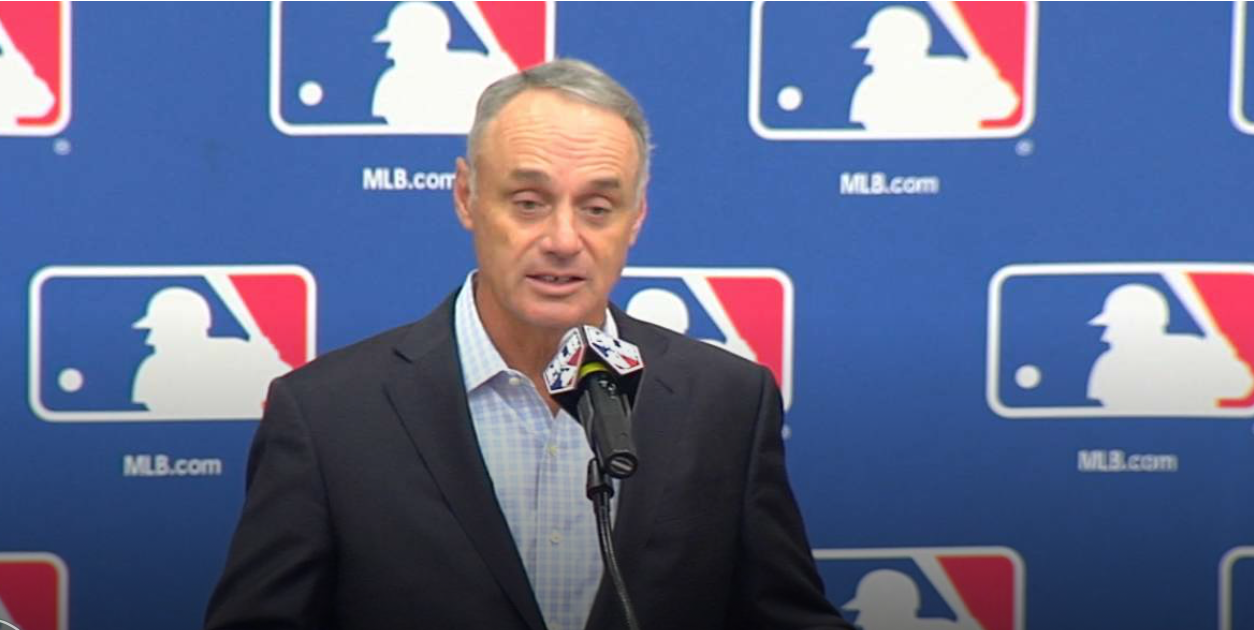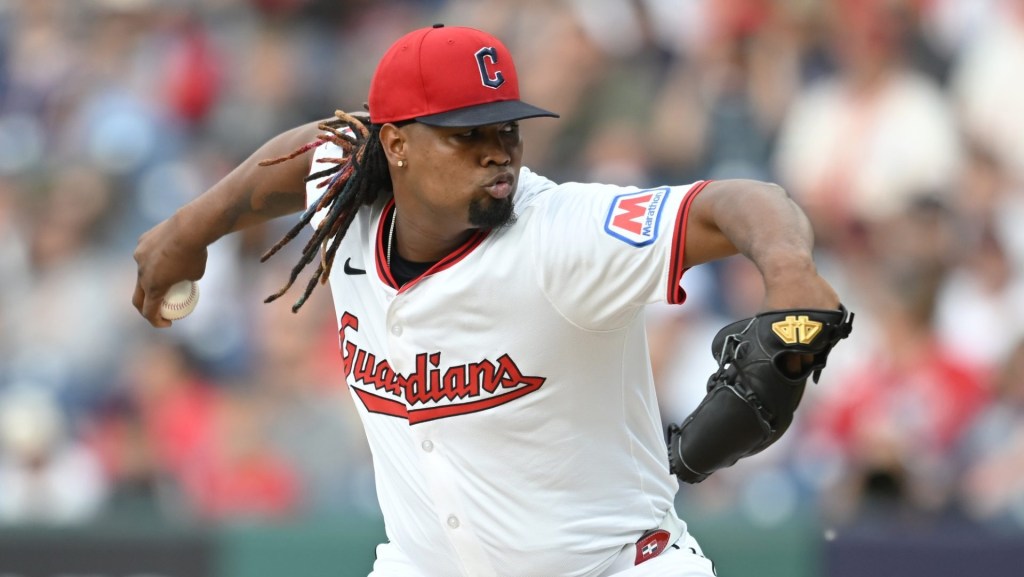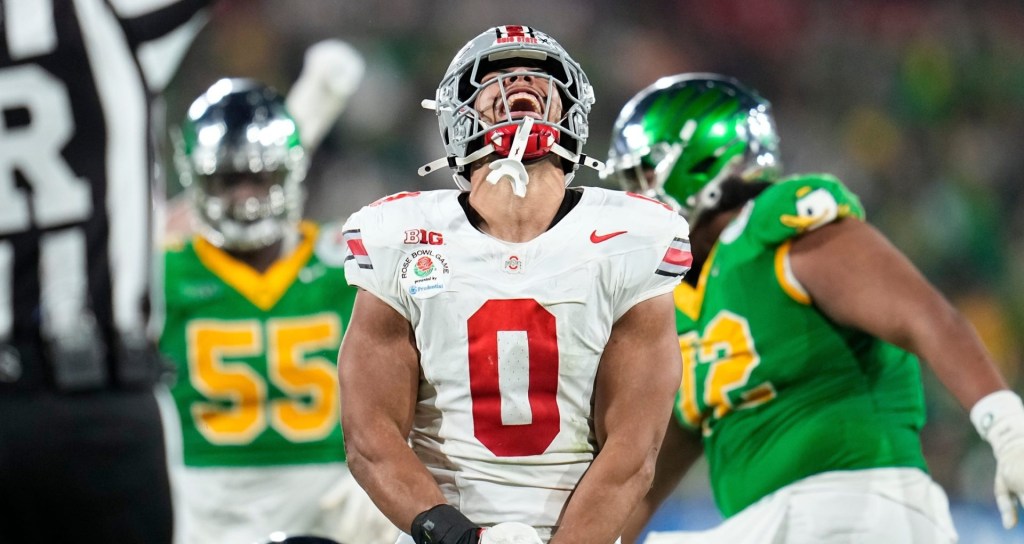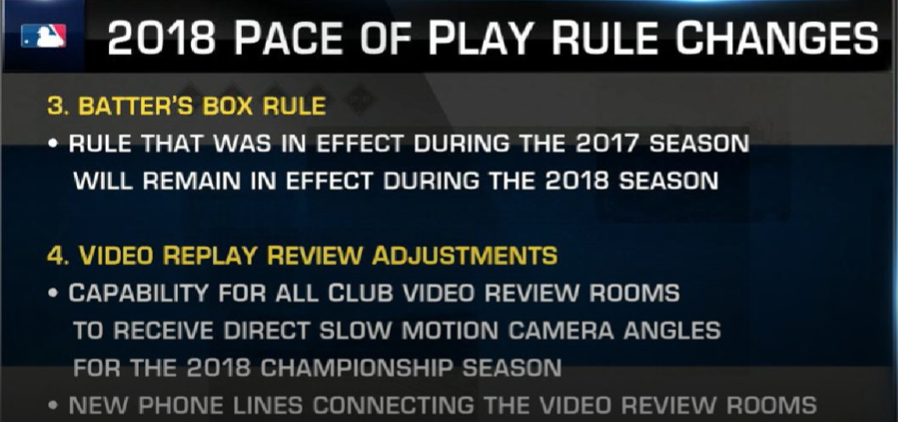
A look at some of the new pace of play rules for Major League Baseball in 2018. (Image via MLB.com)
Swing and a Miss
Ah, the sweet, sonorous snap of the leather; crack of the bat…and Commissioner Rob Manfred continuing to make waves this offseason with yet another announcement as MLB Spring Training officially gets underway. Just before players took the field last week in Florida and Arizona to play their first games of the preseason, Manfred took to the podium to address the state of the game (again, in what’s felt like the never-ending offseason of strife).
There was a brief discussion about the growing trend of “tanking” or rebuilding teams and the stagnant free agent market, but the biggest news of the day was a Rules update. After an ironically protracted wait, the Commissioner finally revealed the Pace of Play changes he’s been hinting at all winter.
Aimed at addressing declining fan interest in the game, the league has decided to institute a limit on the number of mound visits a game, as well as a few other nominal changes designed to speed the game up.
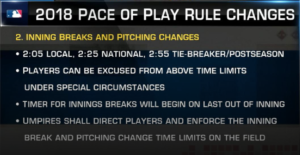
Pitcher Changes (Credit: Mlb.com)
For a full breakdown, see the press release from MLB below; but suffice it to say that in terms of generating support, and appeasing fans and the players, the league definitely struck out looking; initiating even more frustration and discord with the game.
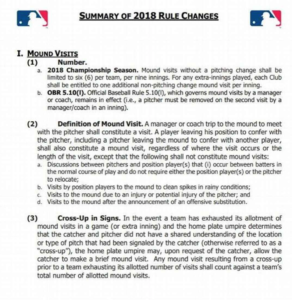
The Fine Print (Credit: Mlb.com)
Coincidentally, AdAge published the findings of a study done by Horizon Media on the cause of the highly-publicized ratings decline and fan frustration with the National Football League during the 2017 season that could contain worthwhile lessons for their sister league (MLB) facing a similar issue. While everybody has a pet theory (politics, patriotism, oversaturation, etc.) Horizon Media Chief Marketing Officer Stephen Hall said that there were two key findings about what is really driving football fans away.
The study found that, “the real reason for decreased engagement is that the NFL has lost some of its heart and connection to its fanbase…who feel the sport has become too much of a business, is less fan-friendly and, in a sense, is losing its ‘heart.’” Fans are tuning out and losing interest in football games because they see the sport operating as more of a business-becoming overly commercialized at the expense of the essence of the game-and entirely unresponsive to their wants and needs. NFL fans have grown sick of bad player behavior on and off the field, and have not seen the players or league do much about it.
Major League Baseball may be well served by looking at these findings and applying them to its own efforts at addressing the declining fan interest in baseball and the game.
As to the first issue of the sport “losing some of its heart,” baseball is treading into some dangerous territory this offseason. Not only has there been an increased emphasis on contracts, free agency, and the economic issues underlying the game, but Commissioner Manfred is pursuing rules changes and going down a path that could fundamentally alter the game. Sean Newell of Vice Sports is right on the money (no pun intended) when he suggests that Manfred and others, “acknowledge that the business and culture of baseball are the problem here-not the game itself.”
Instead of striving to ameliorate the relaxed pace of the game, Manfred and the league should provide options and examples of fans embracing the leisurely aura unique to the only sport not bound by a clock or stopwatch. Fans like Jason Foster of Sporting News actually believe all the emphasis on updates to fix the pace of play, “miss a key point that’s a big part of baseball’s beauty and popularity as a spectator sport: Baseball games are great for multitasking.”
To him and many others, the fact that “baseball doesn’t require exclusivity,” is one of the sports’ biggest advantages. “Don’t like the downtime during games? Then do other things while you watch-like baseball fans have always done. This isn’t a crisis. This is just baseball.” Many of the players, managers, and fans seem to agree. With the pace of play rules changes, Manfred is at risk of doing more harm than good by tinkering with things that are an inherent part of the game. As the National Football League saw, that’s a surefire way to drive fans away.
Beyond that, if Manfred and the league are going to make changes, they should be real updates and meaningful improvements instead of these gilded, half-hearted attempts at placating fans and business partners by showing progress for progress’ sake. If you look at the new Pace of Play proposal, not only are there caveats galore (limit of 6 mound visits…except/unless umpire says ok), but there are no tangible penalties or ramifications. It makes it seem like the actual sport is taking a back seat to the strategic and business needs of MLB.
In fact, respected baseball columnist Joe Posnanski notes that, “the rules are already in place. If everyone would believe in them, enforce them, and generally abide them…the pace of play ‘problem’ would mostly go away.” Focusing on preserving the existing game instead of fixating on the optics of evolving and being innovative would be much more effective at reigning fans’ interest back in than surface, commercially motivated changes that may actually prove to be off-putting and counterproductive instead.
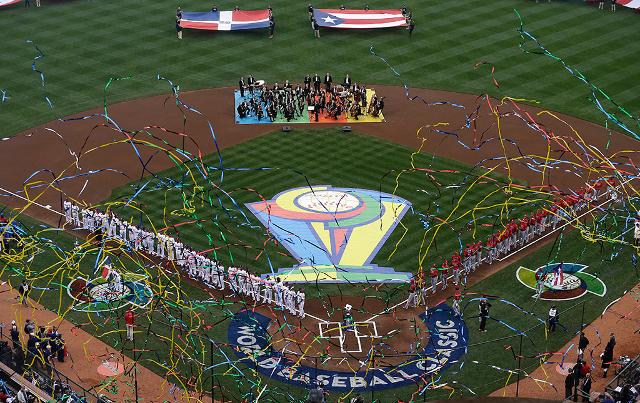
You Can Hear the Cheers (Photo via Mlb.com)
The second point of the Horizon Media study on the NFL (fan frustration over player behavior and a league they see as unresponsive to their wants and needs) is applicable to baseball as well; albeit in a bit of a different way. While many of the NFL’s problems are off the field and have to do with enabling legal or behavioral issues, MLB’s problem is almost the opposite; discouraging any kind of unique behavior from the players. Fans see the league’s fixation on norms and traditions eliminating any potential for excitement and enthusiasm in the game.
Today’s fans want fun and entertainment, yet Major League Baseball has this dogmatic belief in “playing the game the right way,” and indoctrinates players to be bland and boring. Yet look at what draws interest: the World Baseball Classic where players were free to express themselves and look like they were actually enjoying the game; bat-flips displaying passion; stadiums and teams that don’t take themselves too seriously. While it’s certainly not prudent for the sport to turn into a festival or sideshow, the league would come across as much more responsive and fan-friendly by encouraging fun from the players on the field.
By looking at the Horizon Media study on the NFL ratings slide and applying its lessons, Manfred and Major League Baseball have a clear opportunity to hit an absolute home-run, keeping fans interested and engaged in the sport billed as our National Pastime.
